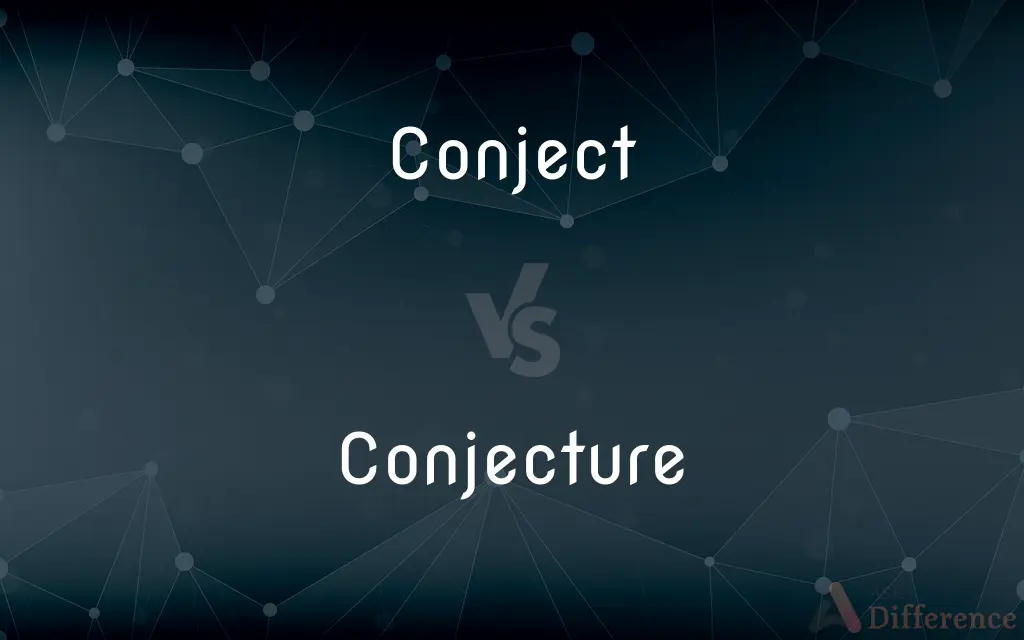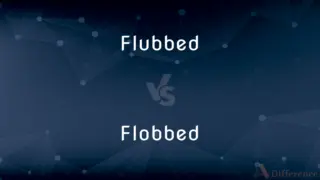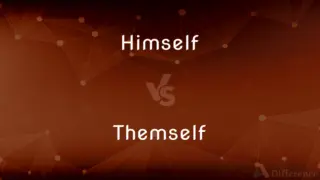Conject vs. Conjecture — What's the Difference?

Difference Between Conject and Conjecture
ADVERTISEMENT
Compare with Definitions
Conject
(obsolete) To conjecture.
Conjecture
In mathematics, a conjecture is a conclusion or a proposition which is suspected to be true due to preliminary supporting evidence, but for which no proof or disproof has yet been found. Some conjectures, such as the Riemann hypothesis (still a conjecture) or Fermat's Last Theorem (a conjecture until proven in 1995 by Andrew Wiles), have shaped much of mathematical history as new areas of mathematics are developed in order to prove them.
Conject
(obsolete) To throw together, or to throw.
Conjecture
An opinion or conclusion formed on the basis of incomplete information
Conjectures about the newcomer were many and varied
A matter for conjecture
Conject
To throw together, or to throw.
ADVERTISEMENT
Conjecture
Form an opinion or supposition about (something) on the basis of incomplete information
Many conjectured that the jury could not agree
Conject
To conjecture; also, to plan.
Conjecture
Opinion or judgment based on inconclusive or incomplete evidence; guesswork.
Conjecture
An opinion or conclusion based on guesswork
The commentators made various conjectures about the outcome of the next election.
Conjecture
To judge or conclude by conjecture; guess
"From the comparative silence below ... I conjectured that Mr Rochester was now at liberty" (Charlotte Brontë).
Conjecture
To make a conjecture.
Conjecture
(formal) A statement or an idea which is unproven, but is thought to be true; a guess.
I explained it, but it is pure conjecture whether he understood, or not.
Conjecture
(formal) A supposition based upon incomplete evidence; a hypothesis.
The physicist used his conjecture about subatomic particles to design an experiment.
Conjecture
A statement likely to be true based on available evidence, but which has not been formally proven.
Conjecture
(obsolete) Interpretation of signs and omens.
Conjecture
To guess; to venture an unproven idea.
I do not know if it is true; I am simply conjecturing here.
Conjecture
(transitive) To infer on slight evidence; to guess at.
Conjecture
An opinion, or judgment, formed on defective or presumptive evidence; probable inference; surmise; guess; suspicion.
He [Herodotus] would thus have corrected his first loose conjecture by a real study of nature.
Conjectures, fancies, built on nothing firm.
Conjecture
To arrive at by conjecture; to infer on slight evidence; to surmise; to guess; to form, at random, opinions concerning.
Human reason can then, at the best, but conjecture what will be.
Conjecture
To make conjectures; to surmise; to guess; to infer; to form an opinion; to imagine.
Conjecture
A hypothesis that has been formed by speculating or conjecturing (usually with little hard evidence);
Speculations about the outcome of the election
He dismissed it as mere conjecture
Conjecture
A message expressing an opinion based on incomplete evidence
Conjecture
Reasoning that involves the formation of conclusions from incomplete evidence
Conjecture
To believe especially on uncertain or tentative grounds;
Scientists supposed that large dinosaurs lived in swamps
Share Your Discovery

Previous Comparison
Flubbed vs. Flobbed
Next Comparison
Himself vs. Themself













































